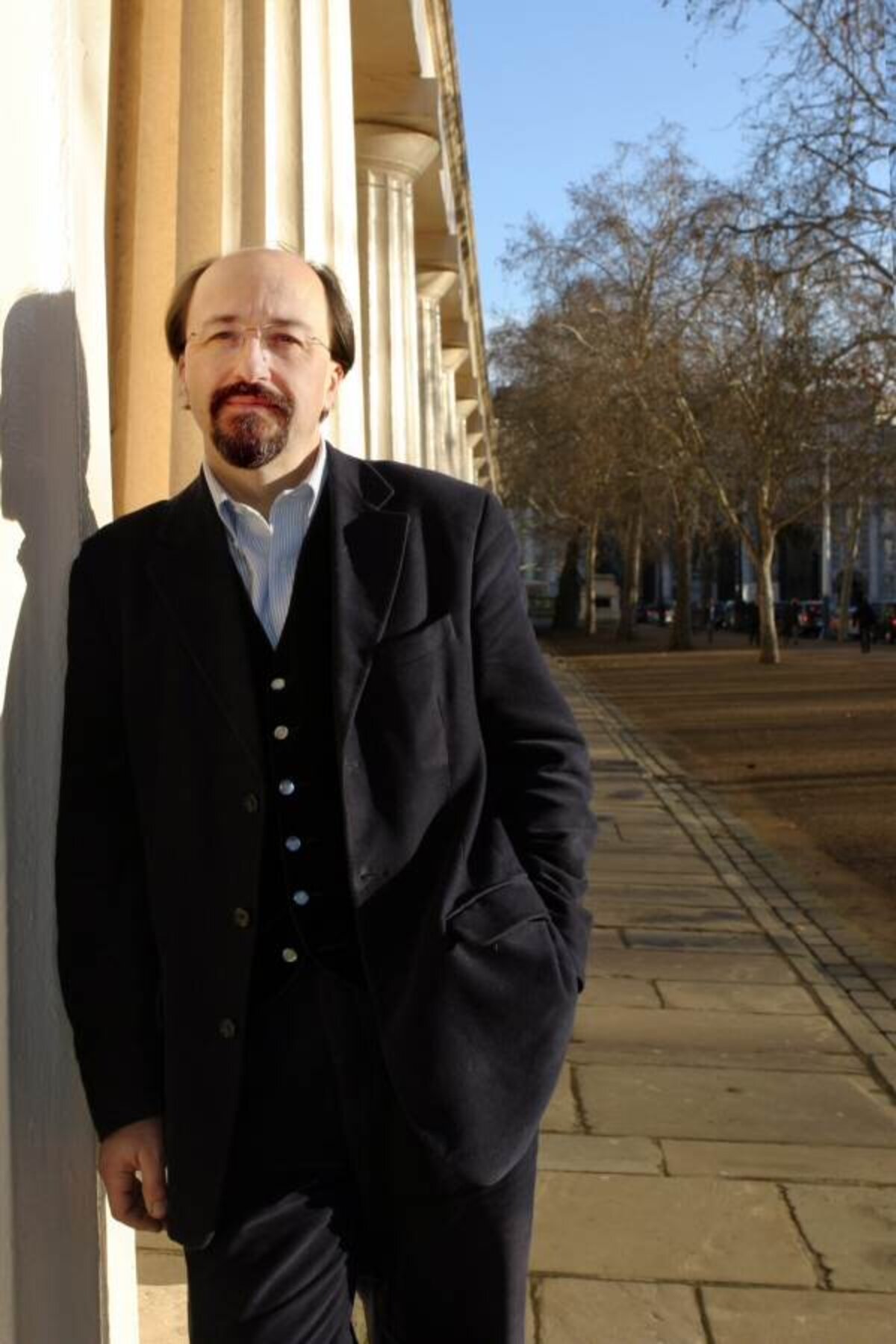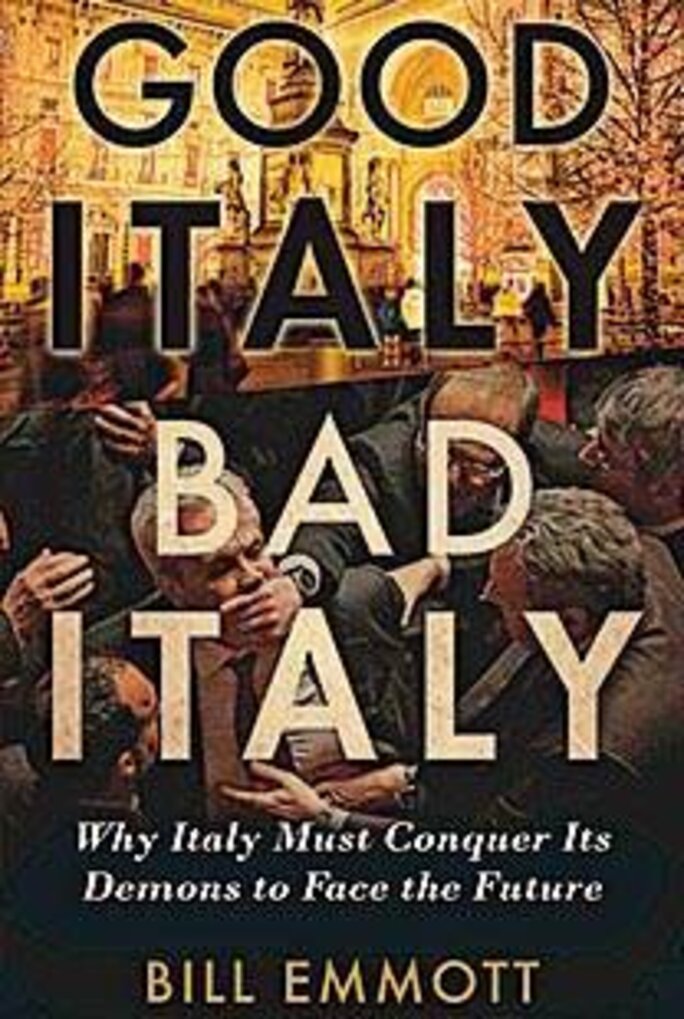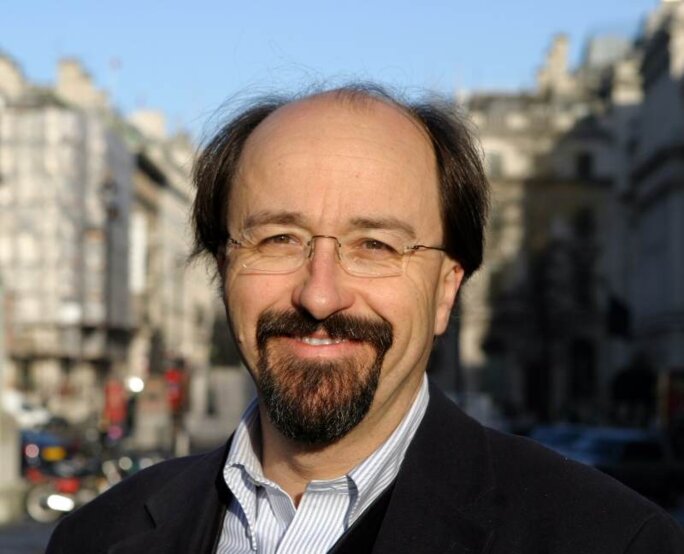In his in-depth analysis of modern-day Italy published this year, Good Italy, Bad Italy, Bill Emmott, former editor-in-chief of British weekly magazine The Economist, argues why Italy has reached a crucial societal and economic crossroads that allows no turning back to its past structure and where the future path for change it will take is all but certain.

Enlargement : Illustration 1

Emmott, editor of The Economist between 1993 and 2006 and who now writes regularly as a columnist for several newspapers, including Italian daily La Stampa, argues that Italy, like other European countries, needs to adopt true economic liberalism which, he says, was hijacked and suffocated in the 1970s and 1980s by vested business interests. One of the chief culprits he identifies is former Italian Prime Minister Silvio Berlusconi.
In April 2001, Emmott entered into what would become a long-standing feud with Berlusconi, after The Economist , during his editorship, published an investigation into the tycoon-turned politician’s shady business empire under the headline ‘Why Silvio Berlusconi is unfit to lead Italy’.
Berlusconi’s verbal wrath against Emmott – describing him and his editorial colleagues as “Communists”, while insisting upon Emmott’s physical similarity to Russian Communist leader Vladimir Lenin – was accompanied by several legal suits for defamation, all of which were ultimately thrown out.

Berlusconi, who stood down in 2011 when he was succeeded by Mario Monti, is currently standing trial in Milan on charges of having sex with a minor and of abusing his power, relating to his hosting of so-called “bunga-bunga” parties that were allegedly orgies. The case is just one of several long-running scandals surrounding Berlusconi’s activities, both personal and business.
It took an international economic crisis and the massive pressure of the financial markets to force out Berlusconi, whose election to three mandates as Italian prime minister, beginning in 1994, by a relatively advanced electorate now appears extraordinary.
Here, Emmott talks to Mediapart’s Philippe Riès about the deep crisis into which Italy, which once boasted the third fastest-growing post WWII economiy, has been plunged, and what he sees as the choice ahead. He begins by returning to that uncompromising 2001 headline and the man he blames for much of the country’s lost direction - a situation summed up by the subtitle to his book as 'Why Italy must face up to its demons to face the future'.
-------------------------
Bill Emmott: Why were The Economist and I personally so interested in Berlusconi? Why did we care about an Italian Prime Minister as much as we did? The answer to this is that we are liberals. We have an ideology, we have been liberals for a century and a half and it offended us that this was a man claiming to be a liberal, when he was not.
Second, what he represents is the desire of business to seize the state and to use it to serve its own selfish interest. In other words, the desire of an element of the Right, in this case a business part of the Right, to subvert democracy and to capture government to serve its own interest.
In the Italian context, he was someone who claimed to be new when he entered politics in 1994. Using the window of opportunity created by the collapse of the old order, with the corruption scandals of the “clean hands” case, Tangentopoli, mani pulite, and the different names given to it, he claimed to be a new figure. But actually, what he is is how you might describe much of the Right in Europe - a defender of the old order.
He has built his business empire on networks, close networks, often Freemasons’ networks, symbolized by the P2 secret lodge that was exposed in the early 80’s and of which he was a member, and on the basis of cosying up to the State, getting special permissions for his property developments. Then, with the government of Bettino Craxi, leader of the Socialist Party during 1980’s, getting permission to launch Italy’s first nationwide commercial television networks and getting exclusive licenses.
So to me and to The Economist this is bad capitalism, because it is capitalism that is creating monopolies for itself, creating closed capitalism though it’s relationship with the State. And he came to power, claiming to represent liberty when it was actually to defend his business interest and those of his associates, political and business, against liberalism, against the judicial system, against the inquiries into corruption, but also against any type of Thatcherite wave of liberalisation.
And he has continued, he and his centre-right coalition, to be the major obstacle to liberalisation. The Left has not exactly been Thatcherite, but during the last twenty years, all of the major liberalisations that have taken place in Italy - whether it be privatisations or liberalisation of the energy and electricity markets, or pension reform, or banking reform, or some of the efforts to open up closed professions like pharmacists or taxi drivers or lawyers - have happened under governments of the Left.
Prime Minister Roman Prodi, or even Massimo D’Alema in the late 1990’s, and certainly Giuliano Amato in the earlier 1990’s, have been the liberalizers, whil the Right has blocked liberalisation. And that of course offends me, as a liberal. But also I think it is a huge missed opportunity, because I believed that the dynamism of Italy and most of Western Europe after the Second World War was based on a social mobility, a corporate mobility, an ability to innovate that was created by the European Community and the free trade provisions of the EC inside Europe […] That then became more paralysed as vested interests became more powerful in the 1970s and ’80s and I believe Western Europe needs to restore its dynamism by a wave of liberalisation. But this is frustrated by the Right, and Berlusconi is to me an extreme example of that. After all, Italy used to be an emerging economy, a ‘Mediterranean Tiger’ if you like, in the 50’s and 60’s, with the third-fastest growth rate in the world over those 20 years. Number one was Japan, number two was South Korea, and number 3 was Italy, faster even than Germany, faster than France.
I believe what we need is to restart that process, that dynamism of creative energy of Italy, but also of the rest of Western Europe. I think that Berlusconi represents to me a kind of oligarchic tendency of entrenched interests that is particularly dangerous when in the hands of billionaires who are able to buy off opponents, and buy in support in a clientelistic sort of way. And to use the media to dull our minds and dominate our democracies, preventing our democracies from having this dynamic, energizing effect that they should have in an ideal world.
Mediapart: But isn’t Berslusconi, like another recently-departed anti-liberal figure of the European right, Nicolas Sarkozy, simply the tree that hides the forest? Because amid all the different debates about the current economic crisis, the liberal argument is hardly the most popular. Isn’t it a lost fight for liberalism?
B.E.: It is a battle that is always difficult because people do not feel naturally sympathetic towards liberalism. Because everyone feels insecure, everyone feels in need of protection, and one of the great myths of government is that it is able to be the great Father Protector for us all. To my mind, the genius of Europe and the European form of the State is, or should be, the combination between a dynamic capitalist economy and a strong welfare state, as a safety net and a distributor to insure that inequality does not become too extensive. But this becomes abused and used as a way of protecting vested interests, particularly older established interests, with an aging population, to prevent the dynamism that should feed the welfare state with economic growth and revenues.

And I think the argument that we, as liberals, need to win is an argument which says that liberalism and the welfare state can and should coexist and that they are not exclusive of one another. It is not about becoming like Hong Kong or America, with a dismantling of the welfare state. But we should make the welfare state something that serves people and acts as a safety net rather than something that obstructs the dynamism of our societies and of our economies.
I am not so pessimistic that we will lose this [battle], but I think it is a difficult struggle. In Italy, I can see that the vested interest are very strong and everyone is trying to protect their own area because they suspect that if they show any weakness then they will lose and others will exploit that. But I think there is a growing sense in this country that really, to borrow a Margaret Thatcher slogan, there is no alternative, that the status quo is unsustainable. The liberalising argument is gaining ground in Italy, only in so far as people have come to accept that the status quo is not sustainable. The exact form of the liberalism is still to be defined, especially ahead of the next general elections and through the formation of new political parties. But nobody is able to say that Italy can continue to be as it is.
We have seen the beautiful Italy, in the Langhe, the vineyards, of fantastic food, great hospitality, of strong communities, but also when you dig deeper and talk to people and travel around the country you can see that there is a worry that Italy could itself be destroyed.
The family, which was a great, strong part of the good Italy, with high savings, wealth represented by houses, and of course a wealth of close family ties, is under great threat because savings are now down closer to British-type levels, having fallen dramatically over the last ten years. Incomes are under pressure, so consumer spending is under dramatic pressure as well. That’s happening because incomes are flat and taxes are rising. This is producing a sense of real crisis, that something really has to change. What we haven’t got yet is a definition of how it should change.
Mario Monti knows that a more liberal approach would be the right one. But he is not a great campaigning, persuasive politician, and I think he is not going to be the man who is able to convince Italians to do this. But he could be, in a way, the ‘secular Pope’ who oversees a change in the mentality and a change in the management of the State. An optimistic view would be that, in general elections next March, a coalition of the Centre and the Left is elected under a relatively liberal Prime Minister. And then that, two months later, Mario Monti would be chosen by Parliament as the new President of the Republic.
For my film, I did an interview with Mario Monti and I asked him “who is your role model?” in trying to make a transformation to save Italy. And I suggested it could be Gorbatchov, or Thatcher, or perhaps Mandela. And his answer was first that he was too modest to answer the question, but then that his role model had to be an Italian, and it would be an Italian from the 1940’s called Luigi Einaudi, who was a great liberal, who had been an economist, a journalist under Mussolini, very much anti-Mussolini. [He] then emerged from the ruins of the Second World War as first, governor of the central bank, and then went on to be president of the republic and was one of the people who shaped the Italian economic miracle by establishing a relatively liberal state.
And I think Mario Monti cited him because he knows that Einaudi was one of the men who laid the foundations for Italy’s economic miracle, and because he was a modest, unassuming, hard-working public servant who didn’t try to get into the limelight and become famous. But also because he thinks that it is a long-term process, and Einaudi oversaw the process for ten years. That’s the kind of perspective that Italy needs to undergo a steady process of reformation.
Mediapart: Does what applies to Italy also apply to the rest of Europe in general, including the UK?

Enlargement : Illustration 4

B.E.: Very big question. The danger for Europe is not a collapse but of a slow decline, a kind of gentlemanly decline that in the most troubled areas produces extremism which could then turn nasty. That’s the spectre that we should all be aware of. Even though we have lot of resources to live off, for the young, for the poorest regions of Europe, which include the poorest regions of Italy in this case but also aspects of France, Spain and even Germany, the danger is that political extremism could take hold and offer alternatives which we won’t like.
I think that the European ideal, especially that represented by the euro, is essentially a liberal idea. But that liberalism is stillborn because it has been resisted at national level, resisted by entrenched interests in every country, but also not really driven [by] this very top-down European system […] I hope personally that the euro will be stabilised and I welcome what the European Central Bank is doing. It needs to be stabilized, in the interests of Europe, in a way that is disciplined, with a set of clear rules that prevents abuses in a fiscal sense. Which means to my mind that Greece needs to leave because I think it is impossible for Greece to follow the rules of the euro, it is just too extreme a case. That is not just about fiscal rules but about liberalisation and restoration of the dynamism of Europe. The whole point of the single currency should be to put the final brick in the construction of the single market, to create a European space in which liberal rules play and regenerate our dynamism. We need to complete that process, convincing public opinion that that is our future and that that is our hope, and that is what provides opportunities for the young.
[…] I think Britain shares many of these problems, we always stay one step outside the system but we have some of the same difficulties. We are benefiting, to some extent, from the emigration of the bright young French or Italians who are coming to London and who help energize the south of England, especially our creative industries, but our economy too is somewhat stuck. Even if we don’t become a member of the single currency, which I am sure we won’t, we need to be part of a reinvigoration of the single market and creating a much more profoundly liberal system. Which was, after all, the vision of Jean Monnet, [and which is] certainly the vision of Mario Monti. That’s got to be the future and the salvation of Europe.
-------------------------
English version: Graham Tearse


